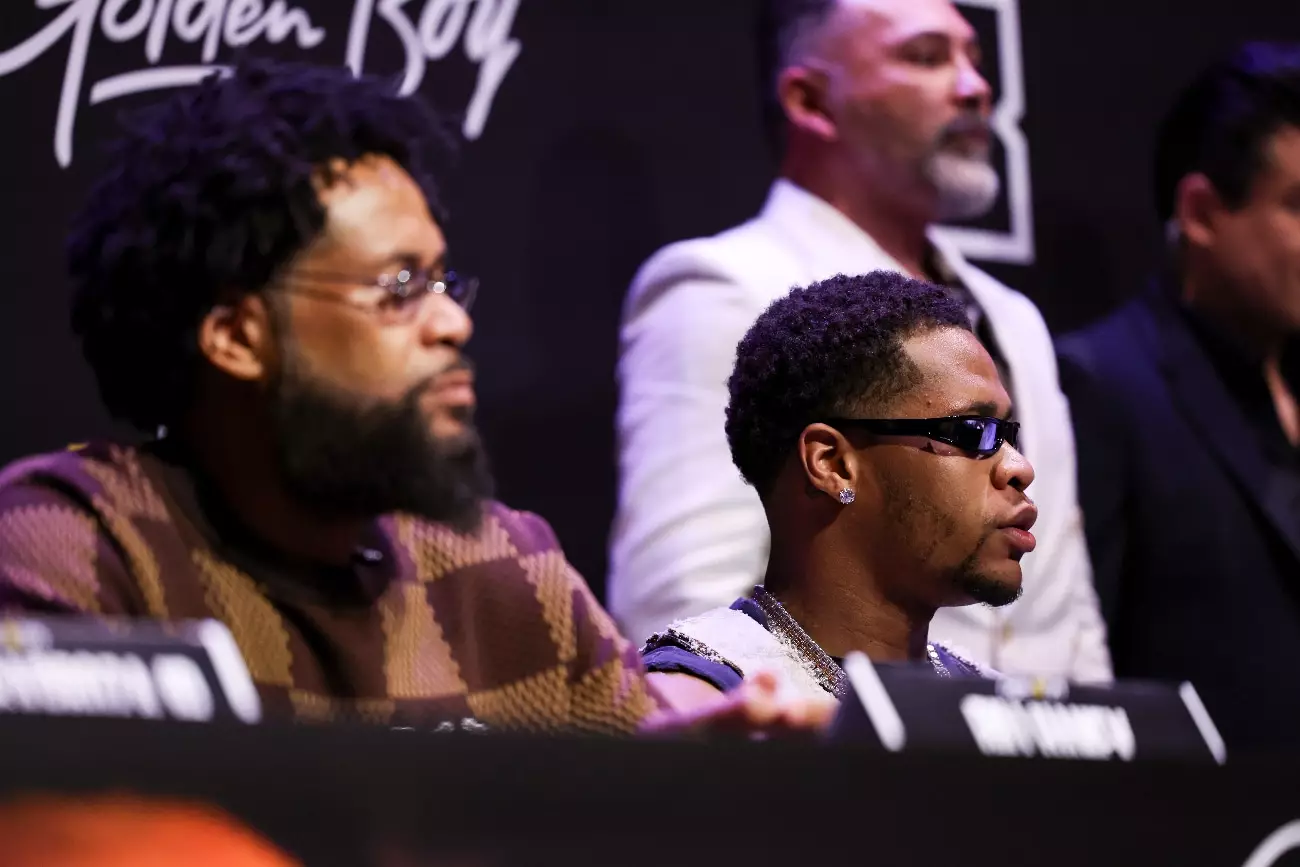The world of professional boxing, with its rich history and fervent fanbase, has recently witnessed a troubling incident revolving around performance-enhancing drugs (PEDs). Bill Haney, father and trainer of notable boxer Devin Haney, has publicly confirmed their ongoing lawsuit against Ryan Garcia. This legal dispute not only highlights concerns surrounding PED usage but also emphasizes the implications it has on the integrity of the sport and the future of its athletes.
The core of Bill Haney’s argument rests on the assertion that Ryan Garcia’s victory over Devin Haney is tainted by the discovery of Ostarine—a substance classified as a performance-enhancer. During their bout on April 15 in Brooklyn, Garcia defeated Devin by a controversial majority decision, a match in which he scored three knockdowns against Devin. Bill Haney firmly believes that Garcia’s use of Ostarine provided an unjust advantage, compromising the fairness of the contest.
This legal endeavor is more than just about one victory. For the Haney team, this lawsuit symbolizes a broader fight against PEDs in boxing—a message intended to reverberate throughout the sport and deter others from indulging in similar practices. While the exact damages they seek remain unclear, the stakes are undeniably high, with potential financial windfalls at play, particularly if the lawsuit leads to a rematch between the fighters.
The prospect of a lucrative rematch looms large for both fighters. However, promoter Oscar De La Hoya’s recent remarks indicate a significant roadblock, hinting that a rematch will not occur until at least 2025. This leaves Devin Haney in a precarious situation where the long wait could hinder his career trajectory. Critics argue that stepping away from the ring for an extended period could diminish his marketability and fighting prowess, particularly if he remains inactive while awaiting a fight against Garcia.
There lies a delicate balance between a fighter’s career and the lingering hope for justice through legal means. If the Haneys miss their chance at a rematch, they could lose not only monetary gains but also valuable experience and reputation, as an active fighter gains exposure to different styles and tactics, strengthening their portfolio in the ring.
While the emotional weight of the Haney family’s claims is undeniable, an objective examination yields skepticism regarding whether Garcia’s alleged PED usage was indeed the decisive factor in their bout. Bill Haney’s emphasis on the impact of Ostarine—a substance known for enhancing recovery and power—could imply a misunderstanding of the nuances of boxing. Critics within the boxing community argue that Garcia’s skill set, particularly his left hook, would have posed a significant threat regardless of drug usage.
Devin Haney’s past issues with chin vulnerability, previously exposed in fights against opponents like Jorge Linares and Vasily Lomachenko, also complicate the narrative. This raises questions around the reliability of the argument that Ostarine was the primary culprit for Garcia’s success.
In a sport grappling with the specter of dishonesty, the Haneys are advocating for greater accountability. Bill Haney passionately asserts that the use of PEDs has no place in boxing, stating that the severity of the issue extends beyond personal outcomes; it’s about preserving the integrity of competition. He advocates for a grim but necessary shift within the sport, advocating for stringent repercussions that would deter upcoming fighters from resorting to cheating.
Despite differing opinions on the implications of this specific case, it is clear that the broader conversation about PEDs in sports remains pertinent. The Haney-Garcia saga offers fertile ground for re-evaluating policies and practices surrounding drug testing and athlete accountability.
As the litigation progresses, fans and pundits alike will undoubtedly continue to weigh in on the consequences of this clash. It serves as a vital reminder that integrity must be upheld in competitive sports. The outcome of this lawsuit may not only influence the careers of the Haneys and Garcia but could also shape the ethical landscape of boxing for years to come. The Haneys, through their outspoken stance, are standing at the intersection of competition and integrity, making a bold statement on what they believe should define the future of boxing.

